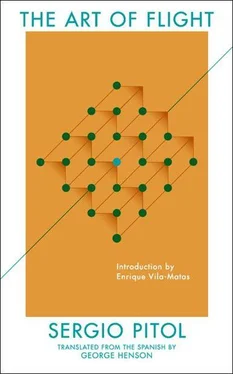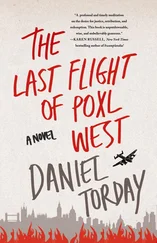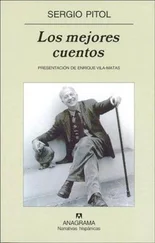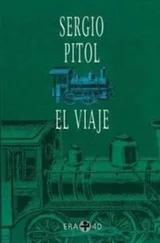SUNDAY, 2 AUGUST
I worked on the chapter dealing with the meeting between Carlos Ibarra and Ángel Rodríguez, and Paz Naranjo’s reaction. A truly difficult chapter. I half-heartedly outlined a few pages. I’m no longer anxious about my poverty, but it doesn’t allow me to work like I should. I would need an apartment, and I only have ten pesetas in my pocket. I’ve not received confirmation of my trip, nor payment for the Jean Franco translation. In the event I do not go to Warsaw, I’d still have to stay two months in Barcelona to reorganize my finances. That’s good. When I saw this moment approaching, I was unable to sleep. The mere thought of the day when I’d be peseta-less kept me awake all night. I asked Ralph if poverty scared him. “No,” he answered instantly. “When you don’t have money, you learn to do without things.” And that’s what’s happening to me now. Last week the thought of running out of toothpaste left me petrified; when it finally ran out I brushed my teeth with soap. The only thing I know for sure is you won’t see me standing in a soup line. There are things that I can’t do: wash my own clothes, for example. I prefer to sell something, the few books I have left, and keep paying for laundry service, or walk around dirty, plain and simple.
17 AUGUST
Last week went from bad to worse. I’m still waiting for payment for the translation of Franco’s book. On the other hand, Era sent me a check, but for some reason I never fully understood, the bank refused to cash it. I had to return it and ask for it to be reissued. What’s more, the telegram from Poland still hasn’t arrived. All this time I’ve had to work in unbearable conditions. I just finished translating Behind the Door , a novel by Giorgio Bassani. The book interested me very little, and I imagine the results are very poor, but I get paid tomorrow and will be able to catch up on the back rent. The horrible light, the noisy neighborhood, the sleepless nights, the chaotic schedule, and the agonizing wait for the mailman, have all become routine these last two months. It’s not surprising I suffered a breakdown all of a sudden. One day, I was unable to work. Everything hurt. I went to bed with a very high fever and the feeling that I had a rock in the pit of my stomach. The next day I received a telegram from Díez-Canedo. He had wired me five hundred dollars. My fever went away immediately. I went to the bank. Apparently the transfer process is very complicated: first the money arrives to Madrid, then goes to a currency exchange office, which transfers a payment request to Barcelona. In all, it means waiting a few days. I left the bank, bought the laxative recommended to me by the hostel owner’s nieces; I took it and have spent three days with horrible stomach pains. If I’m not able to collect the money, and if the invitation from Zofia doesn’t arrive, I’ll never be able to leave this hellhole. What a bloody nuisance! Sometimes I feel like postponing the trip to Poland and renting a furnished apartment. On Craywinckel, at the foot of Tibidabo, for example, in the building where the De Azúas and Myriam Acevedo live. That wouldn’t be bad at all. First, I’d have to spend a week at the beach. I desperately need a change of atmosphere, a bit of rest, and the sea air. What a wonderful, incredibly generous person, Félix! Thanks to his help at Seix Barral I’ve managed to survive.
23 AUGUST
In Los Caracoles. I’m writing these lines beneath an autographed photo of Mistinguett. I’d like to have more friends, become better organized. How many times have I written, thought, and said the same thing? The trip to Poland still seems possible. But it’s not that important anymore. I just want to write. Suddenly everything that lay hidden and managed to survive being crushed beneath the awareness of poverty has come to life again. A desire for everything! An appetite for everything! All I need is to learn how to sleep decently again. I continue to work on the Conrad introduction. Translating in such a compulsive way has become mind-numbing. Will I be able to incorporate Ralph and his four years “on the road” into my novel? Make him perhaps a character in a chapter that’s a reflection on radical exile? I survived! Yes, I’m alive. Yes, yes, yes, yes.
SATURDAY, 30 AUGUST
Dreadful days. Reading Mandiargues’s La Marge strengthened my resentment for the vast and sickening bordello that is my neighborhood. Last night I witnessed an especially grotesque spectacle in a dive where I drink coffee. A black lad, who looked like a doll, was having a drink at the bar and looking out onto the street. He was dressed impeccably, his face touched up with makeup, possibly under the effect of some drug, his pupils dilated beyond description. He must have been rich; he was dressed like a king. It seemed as if his only possibility in life was suffering. He exuded it. The display of such suffering was able to thrive in numerous literary sources; there was a great deal of the hysterical exhibitionism from Tennessee Williams, but more of the languid affectation of M. Delly. A little black princess of the moor. He was surrounded by an escort of battle-hardened Arab bodyguards; one raised the cup to his mouth, another wiped his lips with a napkin, he seemed to not even notice them, his eyes were fixed on the door, as if he were waiting for someone, a lover or a drug supplier. The five or six bodyguards surrounding him stared menacingly at the clientele, like thugs. Now, as I write this, it occurs to me that he might have been kidnapped, and they were waiting for the ransom that would set him free. How gruesome! His servants displayed too much servile respect for that to be true. In any event, it’s rare to find such a flamboyant character and entourage in an out-of-the-way place like this. Perhaps I’m writing this just so I do not have to deal with what happened in the Dingo…A week ago when I was there a guy walked up and sat at my table: his face wasn’t completely unfamiliar; maybe because it was a look that had been practiced carefully so everyone would recognize it. He said hello matter-of-factly, and commented that we had not seen each other since our rendezvous in Lausanne, a city I’ve never even set foot in. He was drunk, or at least pretended to be. I asked where he was from. “Ecuador,” he replied. “You look like you’re Catalan.” “Well, I’m not.” I was beginning to dislike his presence at the table, his tone. I asked for my bill. Then he said: “Okay, let’s go somewhere else.” “I’m not going anywhere; I’m out of money.” “Come have another drink.” “Thanks, but I can’t with this headache.” His tone changed abruptly. He whistled between his teeth menacingly: “Go and tell them at your company right now that I need money. I want twenty thousand dollars and an Argentine passport.” At that moment several sinister-looking guys came into the bar; one of them seemed to be motioning to the man who was talking to me, who got up and walked, randomly and after making a complicated detour, to the table where the others had just sat down. A minute later, a huge brawl broke out, but in a made-up, theatrical sort of way, which my “acquaintance from Lausanne” took part in. So I took advantage of the opportunity to slip out of the place, frightened to death. It seemed obvious to me that I had been mistaken for someone else. And in police novels those kinds of mistakes usually end you up in the morgue. Tomorrow will be my last day in this neighborhood. I’m moving in the opposite direction. It’s wonderful being able to escape! Every cell in my body rebels against the existence of this disgusting labyrinth: against the limping, midget, haggard-looking, hunchbacked whores who fill its streets when night falls. Against the charade that rules the sex trade. It will be marvelous to escape tomorrow to my apartment in Craywinckel! It feels like pus that’s impossible to wash off has splattered all over me. I wouldn’t care in the least if someone decided to dynamite all of this. “I shall latch onto my God who destroys me!” This statement might not even be five percent true, but today I’m in complete agreement with that five percent. I’m an absolute prude.
Читать дальше












